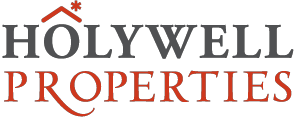Buying Tips

Looking to buy a home? Our Zealty software presents a wealth of information on available properties, and several different ways to search.
If you want your new home to be within a certain distance of a work or school location, try out the Property For Sale map. It’s also a great way to get familiar with different neighbourhoods.
If you want to browse through a list of properties, viewing a feature photo and reviewing summary information as you go, try our List Search.
Both options allow you to narrow down what you are shown to just those properties which meet your criteria, including:
- Region
- Type of Property
- Price Range
- When the Property was Listed
- Number of Bedrooms and Bathrooms
- House Size Range
- House Age
- Lot Size
- and More!
The Zealty software also lets you see the MLS® history of properties, including when they were last sold and for how much. You can see the lot boundaries too! To gauge if the price of an active property is reasonable, you can easily compare with similar sold properties in that area.
If you have questions, want to view some properties, or are ready to buy, call us! We will put you in touch with one of our cooperating REALTORS® who knows the market and understands the data. This REALTOR® will walk you through all the steps of buying your home and work to protect your interests exclusively.
Note: Sold and expired information is currently provided only for properties in the regions served by Greater Vancouver REALTORS®, Fraser Valley Real Estate Board, and Chilliwack & District Real Estate Board.
Buying Tips — Timeline
- Planning a move from your current home.
- If you already own a home which you need to sell before buying a new home, be sure to tell your agent. In this situation, your agent will include a special condition in any offer to purchase you make which will defer your obligation to buy until your current home sells.
- If you're currently renting on a month-to-month basis in British Columbia, remember that in order to terminate your rental agreement, you must give at least one month's notice to your landlord. Termination is effective on the last day of the next rental period after notice is given. So, if you pay rent on the 1st of every month, and you want to vacate at the end of a given month, you must give notice sometime before the first day of that month. If you delay and give notice in the first few days of the month when you expect to leave, you will have to pay rent for the following month as well.
- Interview moving companies to find out what it will cost to move your household items to a new home. More importantly, determine how far in advance you need to schedule your move. Your mover's availability will likely dictate the date you give notice to a landlord or close the sale of your current home. To minimize moving and temporary accommodation expenses, you will usually want to specify a possession date for your new home which immediately follows the date you move out of your current home.
- Open up a chequing account at a Canadian financial institution and order some cheques. Most mortgage lenders will require mortgage payments to be made by automatic electronic funds transfers from your chequing account. Mortgage funds will not be advanced unless you can supply a voided cheque with an EFT authorization, so avoid a last-minute panic by opening an account well before you begin hunting for a mortgage or a home.
- If necessary, begin converting assets (stocks, bonds, foreign currency, etc.) to Canadian cash so that you will be ready to make a 5% deposit as soon as your offer to buy a new home is accepted. Also make sure you will have enough cash on hand to pay moving and closing costs as well as any initial maintenance & renovation expenses.
- If you're a first-time home buyer, you may be able to withdraw up to $60,000 from your registered retirement savings plan (RRSP) to help pay for the home. This money must be returned to the plan within 15 years with an annual repayment which is at least 1/15 of the amount withdrawn. Contact a financial professional for more information on this Home Buyers' Plan (HBP) or visit the Canada Revenue Agency HBP Web page to learn how to make a request to withdraw funds.
- Also available to some buyers is a federal First-Time Home Buyers' Tax Deduction of $10,000.
- Note: On January 1, 2023, the Prohibition on the Purchase of Residential Property by Non-Canadians Act came into effect, a federal law that now essentially bans foreign buyers from buying residential properties as investments until January 1, 2027. There are numerous exemptions, including territorial exemptions.
- Determining what you can afford to pay for a new home.
-
You will probably need to borrow money, secured by a mortgage, to help fund the purchase of your new home. The maximum amount you can borrow is based on criteria set by your lender for determining the ability of a borrower to repay a loan. A general rule of thumb is to calculate the loan amount that could be repaid over 25 years if you spent no more than 32% of your gross income on mortgage payments and property taxes.
For example, if your annual income is $75,000 and expected property taxes are $2,500, your maximum monthly mortgage payment is (0.32 x 75000 - 2500) / 12 = $1792. For a 3% loan amortized over 25 years, this monthly payment corresponds to a loan amount of about $379,000. Use the mortgage calculator provided by Canada Mortgage & Housing Corporation for assistance in determining the maximum affordable house price given your current financial situation.
The amount you can afford to pay for a new home is your maximum loan amount plus your cash down payment. The required down payment is normally at least 5% of the purchase price up to $500,000 and 10% of the amount above $500,000 — or at least 20% if you don't want to pay for mortgage insurance. However, don't use up all your cash for the down payment — you're going to need money for closing costs (see below), moving expenses, and insurance.
- Get a pre-qualification certificate from your lender. This certificate will indicate the maximum loan for which you qualify and will also guarantee an interest rate for 60-90 days. Having it on hand will make it much easier to finalize a mortgage once you find a new home and wlll make the seller much more comfortable with your offer.
- Don't forget to budget for the closing costs you will need to pay, they can add up and may affect the amount you can put towards a down payment. The biggies are the B.C. Property Transfer Tax (1% of the first $200,000 of the purchase price, 2% of the balance up to $2,000,000, and 3% of the remainder (and a further 2% on the value of residential property over $3,000,000) plus an additional 20% within specified areas of BC (Metro Vancouver Regional District, Capital Regional District, Fraser Valley Regional District, Regional District of Central Okanagan, and Regional District of Nanaimo) if you are a foreign national, foreign corporation, or taxable trustee — there are exemptions, however, so be sure to investigate; for example, there is a property transfer tax reduction if you buy a newly-built home for under $835,000, you are a Canadian citizen or permanent resident, the home will be your principal residence, and the lot size is less than 0.5 hectare). Other expenses are the federal GST (for newly built homes and some vacant lots), survey fees, title insurance, appraisal fees, and legal/notary fees. You will also need to pay for house insurance.
- After purchase, an annual provincial Speculation and Vacancy Tax may apply depending on the location of the property and your use of the property. The City of Vancouver also has an Empty Homes Tax. The rules for each tax and how they apply are not the same.
- Beginning the hunt for a new home.
-
It's a good idea to establish the general nature of the home you would like to buy early so that you can focus your search and not waste time looking at unsuitable properties. Some characteristics to consider are:
- Size: house / lot
- Rooms: number of bedrooms & bathrooms / in-law suite
- Style: rancher / multi-level / vaulted ceilings / fireplace
- Extras: garage / workshop / garden / patio / deck
- Wow factor: waterfront / view
The location of the property is obviously a very important factor as well.
- Once the type of home you would like to buy, the preferred locations, and the purchase price you can afford are known, your agent can quickly identify properties for you to consider. Your agent can also arrange viewings of any properties which you want to look at in person.
- If there are no homes that interest you right away, fear not. New properties come on the market almost every day and your agent can examine all these listings very closely and alert you quickly when something appears that meets your requirements. You can also monitor the Property For Sale map every day to learn about new listings as soon as they become public.
-
Making an offer and closing the deal.
- Once you've identified a home you'd like to buy, it's best to move quickly, particularly in a rising market where buyers outnumber sellers. Your agent can advise you on a reasonable offer price and put together a written offer that protects your interests. Such an offer would typically be made subject to important preliminary matters such as the sale of your current home, a firm mortgage financing commitment, and various inspections (building, septic, chimney). It will also indicate which appliances are to be included in the transaction.
- If your offer is accepted, you must quickly take steps to remove (or waive) all subject to clauses within the times specified in the agreement of purchase and sale. Your agent can help you set up inspections by qualified professionals. You should contact your mortgage lender immediately to lock down the mortgage commitment and ask the lender to order a property appraisal and survey.
- Once all subject to clauses have been removed, the agreement of purchase and sale is firm and binding. You should now contact a notary public or lawyer who will prepare mortgage documents and handle the property conveyance on the closing date. Also contact an insurance agent to arrange for homeowner's insurance which names the lender as loss payee — your lender will not advance funds until an insurance binder has been received. Finally, contact your mover to confirm a moving date and then start packing.
- You are entitled to begin occupying your new home on the possession date and time specified in the agreement of purchase and sale. Be sure your movers don't arrive before you are entitled to take possession!
- The adjustment date, usually the same day as the possession date, is the date on which you become responsible for property taxes and utilities. Contact BC Hydro (for electricity), Fortis BC (for natural gas), and Eastlink, Telus, or Shaw (for cable TV and high-speed internet) to set up new accounts so that utilities will be available on the adjustment date.





 Looking to buy a home? Our Zealty software presents a wealth of information on available properties, and several different ways to search.
Looking to buy a home? Our Zealty software presents a wealth of information on available properties, and several different ways to search.

